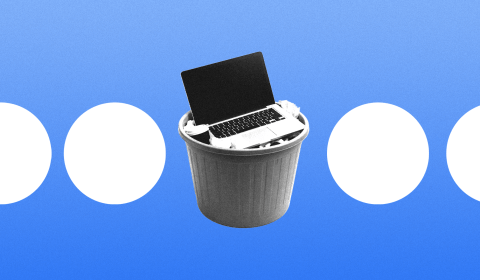*…genes?
What’s gooooood everybody? 👋
Hope this week is treating you well so far. The summer weather has all but abandoned us here in London, so hopefully you’re getting a bit more sunshine wherever you may be reading from in the world.
In true Tuesday fashion, we’ve got a newsletter chocked full of news stories you ought to be in the know about. Whether you’re intrigued by the shifting landscape of football (go Lionesses!), the reason behind Vogue losing its once-dedicated magazine subscribers, why VPN downloads are soaring in the UK, or how France’s recognition of a Palestinian state could impact the future… we’ve got you covered.
There’s much, much more in store, so let’s dive in already!
💬 Culture
Football is being reinvented in the best possible way – thred
As women’s football becomes more popular, it’s not only ushering in new commercial opportunities, but transforming the culture around the sport. Football has long been treated as a man’s game, with women banned or disincentivised from participating in organised football for most of the 20th century. Fast forward to today, and the women’s game now represents one of the fastest-growing segments in global sport, attracting unprecedented commercial attention from brands, broadcasters, and rights holders alike. It can be argued that the 2022 Euros changed the women’s game forever. Attendance records were shattered, viewership figures soared, and a new generation of fans emerged. A shift has occurred, both aesthetic and ideological. While men’s football has long relied on ‘chest-pounding celebrations, tunnel brawls, and tabloid-fuelled egos,’ women’s football is framed by friendship, teamwork, and intersectionality making room for joy, softness, and care within the game. For many, the success of women’s football represents a long-overdue shift. The UEFA projects that women’s football will generate €686 million annually by 2033.
‘African American’ is awkward. It’s time to use ‘Black.’ – nyt
NYT writer and linguist professor John McWhorter believes that the term African American should be phased out (and likely will be in the future), because Black culture in America today – and the identity of Black Americans – is now distinct from African heritage. McWhorter notes that the term ‘African American’ was ushered in by the widely influential Reverand Jesse Jackson in 1988 because it held ‘a note of pride, a note of heritage’ while the term Black was deemed ‘too crude and general’ at the time. In this podcast/article, McWhorter explains how the terms we use to describe identities have always changed overtime to be more adequately representative of specific groups and even goes as far as saying that White should be capitalised along with Black, Latinx and Asian American, to negate the capital W that white nationalists use obnoxiously to make some kind of distinction between themselves and others. ‘To the extent that we’re going to have these inconvenient – but frankly necessary – labels for the races, why don’t we capitalise them all?’ Whorter suggests. ‘So we acknowledge all of them as unfortunate, but indispensable artifices.’
👖 Style
Vogue subscribers disgusted by the use of an AI model in photoshoot – futurism
Vogue members are cancelling their subscriptions in droves over a two-page Guess ad featured in the magazine’s latest edition. The blonde model featured in the ad was the result of marketing company Seraphinne Vallora’s generative AI, and it didn’t take long for readers to figure that out. Vogue readers took to the internet to express concerns that normalising AI models in magazines will put human creators out of work and exacerbate already impossible beauty standards. Internet users called the use of AI models ‘lazy and cheap,’ stating that the fashion giant’s use of them ‘harms creativity’ and will grant publications previously afraid of the backlash of using AI to follow suit. ‘This is the downfall of Vogue,’ wrote one user on X.
Sydney Sweeney’s new campaign draws fire for racial undertones – salon
American Eagle is in hot water over its latest denim campaign, in which it claims ‘Sydney Sweeney Has Great Jeans.’ Posted on social media and plastered on billboards in major US cities, spectators picked up on a dual meaning: Sydney Sweeney great genes. As the camera pans slowly over her body, a blue-eyed, blonde-haired Sweeney says: ‘My body’s composition is determined by my jeans. Genes are passed down from parents to offspring, often determining traits like hair colour, personality and even eye colour. My jeans are blue.’ The marketing campaign has been criticised for glorifying whiteness by parading the language, codes, and symbols that have been used to uphold eugenicist fantasies of whiteness as being racially supreme (and by default, MAGA, which Sweeney’s family has been linked to in the past). Though the ad has left a bad taste in the mouths of millions, it seems ‘wokeness’ can’t compete with Sydney Sweeney’s pull. American Eagle has seen a $200 million USD jump in profits, raising questions about the return of sexism and conservatism in fashion advertising.
🔞 Tech
VPN use surges in UK as new online safety rules kick in – financial times
In order to comply with the UK’s long-anticipated Online Safety Act, thousands of sites offering adult content, as well as social media platforms like Reddit, TikTok, and X, have implemented new ‘age assurance’ systems. To access 18+ content on these sites, users must complete an age verification by submitting a photo of a government ID or have a selfie algorithmically verified as belonging to an adult. With concerns over how these verification systems will impact their privacy, people all over the UK are refusing to submit their official data and turning to VPNs to gain access to these platforms. Though the safety bill was implemented to protect young people online, a petition on the UK government website demanding that the Online Safety Act be repealed has already attracted more than 280,000 signatures. The UK is one of the first democratic countries to impose strict content controls on tech giants, and global leaders will certainly be monitoring the fallout to determine how to enforce their own online safety measures.
How big tech plans to feed AI’s voracious appetite for power – economist
In the age of AI, tech facilities requires about 10x times more power than a non-AI version built only a few years ago. As ‘hyper-scalers’ of AI, Alphabet, Amazon, Microsoft and Meta, are scrambling to find space and energy sources for larger data centres to keep up with global demand for the technology. They have several options: rent data centres from AI cloud companies, buy and develop nuclear-powered data sites from electricity companies (which could drive up power for local residents), or look for options abroad. Gulf countries are poised to host data centres of the future thanks to developments funded by sovereign wealth firms, while Spain’s potential for solar-power makes it another popular choice. Malaysia has solidified itself as a data-centre hotspot on account of its cheap energy, but is implementing a surcharge for data centres at the start of July which may put off hyper-scalers. The success of these companies rests on which choice they make – a tricky business when ‘even the most advanced AI model might struggle to give definitive advice.’






















